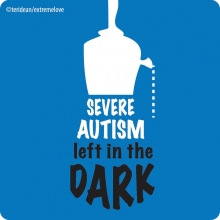Hypoglycemia
Once you get a handle on it, you'll manage it and be fine I feel certain:)
My endocrinologist says that NO meal should exceed 25 grams of carbs, (not sugar, just carbs of all types)... and snacking often helps. It's common postop. If you don't have a blood glucose meter, have a small glass of orange juice or some other quick form of sugar. If you feel better quickly, then you know it's blood glucose.
it's NOT something to play with. If your blood sugar drops too far you can pass out, have seizures, go into a coma, or even die. It's very serious. But it's also fairly easy to control. Snacks should have a high protein/fat content compared to carbs.... the carbs get the insulin flowing but the protein and fats help you to be more stable. I have beanut butter crackers for if I have a problem. The carbs in the crackers are mitigated by the protein/fat in the peanut.
I began to suspect that I had RH about year 2, and finally had a very bad episode about 2 1/2 years out, so then I got a glucose monitor, and found it was true, I had the RH. Now that I'm at the end of my 3rd year and almost to my 4th surgiversary, I worry more about the RH than I do about dumping, or even WLS restrictions.
~Lady Lithia~ 200 lbs lost!
March 9, 2011 - Coccygectomy!
I chased my dreams, and my dreams, they caught me!

App 1 year post op RNy I developed RH (Reactive Hypoglycemia). And as times goes by - it is getting worse and worse. Now not only I have RH but also the hypoglycemia.
Reactive - means that the low BS may happen if too many carbs or sugars are consume. Hypoglycemia - means that blood sugar may drop regardless in carbs are eaten or not. And it will happen if I do not eat every 2-3 hrs.
It is very common post op RNY. We need to eat often to maintain normal blood sugar. That may make the maintenance very difficult.
I react to any sugars and starchy carbs.
New Data on Weight Gain Following Bariatric Surgery
Gastric bypass surgery has long been considered the gold standard for weight loss. However, recent studies have revealed that this particular operation can lead to potential weight gain years later. Lenox Hill Hospital’s Chief of Bariatric Surgery, Mitchell Roslin, MD, was the principal investigator of the Restore Trial – a national ten center study investigating whether an endoscopic suturing procedure to reduce the size of the opening between the gastric pouch of the bypass and the intestine could be used to control weight gain in patients following gastric bypass surgery. The concept for the trial originated when Dr. Roslin noticed a pattern of weight gain with a significant number of his patients, years following gastric bypass surgery. While many patients could still eat less than before the surgery and become full faster, they would rapidly become hungry and feel light headed, especially after consuming simple carbohydrates, which stimulate insulin production.
The results of the Restore Trial, which were published in January 2011, did not confirm the original hypothesis – there was no statistical advantage for those treated with suturing. However, they revealed something even more important. The data gathered during the trial and the subsequent glucose tolerance testing verified that patients who underwent gastric bypass surgery and regained weight were highly likely to have reactive hypoglycemia, a condition in which blood glucose drops below the normal level, one to two hours after ingesting a meal high in carbs. Dr. Roslin and his colleagues theorized that the rapid rise in blood sugar – followed by a swift exaggerated plunge – was caused by the absence of the pyloric valve, a heavy ring of muscle that regulates the rate at which food is released from the stomach into the small intestine. The removal of the pyloric valve during gastric bypass surgery causes changes in glucose regulation that lead to inter-meal hunger, impulse-snacking, and consequent weight regain.
Dr. Roslin and his team decided to investigate whether two other bariatric procedures that preserve the pyloric valve – sleeve gastrectomy and duodenal switch – would lead to better glucose regulation, thus suppressing weight regain. The preliminary data of this current study shows that all three operations initially reduce fasting insulin and glucose. However, when sugar and simple carbs are consumed, gastric bypass patients have a 20-fold increase in insulin production at six months, compared to a 4-fold increase in patients who have undergone either a sleeve gastrectomy or a duodenal switch procedure. The dramatic rise in insulin in gastric bypass patients causes a rapid drop in glucose, promoting hunger and leading to increased food consumption.
“Based on these results, I believe that bariatric procedures that preserve the pyloric valve lead to better physiologic glucose regulation and ultimately more successful long-term maintenance of weight-loss," said Dr. Roslin.
http://www.lenoxhillhospital.org/press_releases.aspx?id=2106
Hala. RNY 5/14/2008; Happy At Goal =HAG
"I can eat or do anything I want to - as long as I am willing to deal with the consequences"
![]()
"Failure is not falling down, It is not getting up once you fell... So pick yourself up, dust yourself off, and start all over again...."
17+ years post op RNY. first year blog here or My LongTimer blog. Tummy Tuck Dr. Matic 2014 -Ohip funded panni Windsor WLS support group.message me anytime!
Windsor WLS support group.message me anytime!
HW:290 LW:139 RW: 167 CW: 139
17+ years post op RNY. first year blog here or My LongTimer blog. Tummy Tuck Dr. Matic 2014 -Ohip funded panni Windsor WLS support group.message me anytime!
Windsor WLS support group.message me anytime!
HW:290 LW:139 RW: 167 CW: 139
If this sounds familiar, it's because it is the lifestyle plan recommended after WLS!
Proud Feminist, Atheist, LGBT friend, and Democratic Socialist









